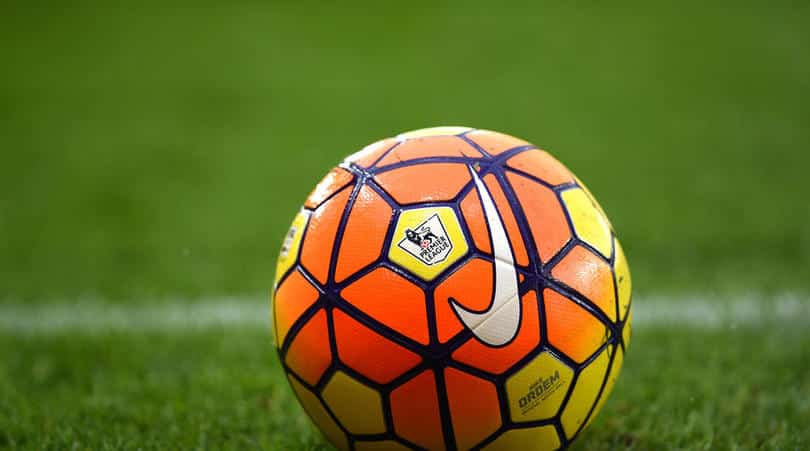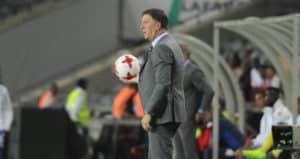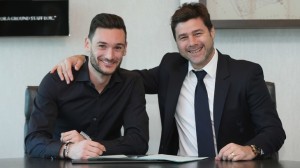The coronavirus pandemic could cost the Premier League ‘at least £1 billion’ the competition’s chief executive, Richard Masters, has warned.
Masters said the cost could be considerably higher than that if the impact of the pandemic extends further into the future.
His comments on the state of top-flight football’s finances were laid out in a letter to Julian Knight, chair of the Digital, Culture, Media and Sport committee.

Masters said: ‘We face a £1-billion loss, at least, if we fail to complete season 2019-20, and further losses going forward if the seriousness of the pandemic deepens and extends into the future.’
Professional football in England is suspended indefinitely, with a return date being kept under constant review.
Masters argued it was the right of Premier League clubs, such as Tottenham, Newcastle and Bournemouth, to utilise furloughing in the circumstances. Liverpool reversed their decision to furlough staff on Monday night after widespread criticism of the move.
Masters added: ‘The furlough scheme announced by Government is meant for the whole economy, including many enterprises which might be regarded as providing entertainment or otherwise dependent on elite talent.
‘Not only is our industry facing losses now, but to be realistic, we must also base our plans on full recovery being some distance away.
‘Ultimately, the very heavy losses that we face will have to be dealt with or else clubs or other enterprises who depend on football for income will go out of business.’

Knight said the idea that Premier League clubs should need to make use of the Government scheme was ‘frankly laughable’.
‘It is time for the Premier League to stop defending the indefensible,’ he said.
‘They should be working out a way to carry on paying the wages of club staff without resorting to taking money from the government scheme.’
The DCMS committee announced on Tuesday that a new inquiry would look into the impact of the pandemic on a variety of industries, including sport, with evidence sessions to be held from late April to early May.
Earlier, Football Association chairman Greg Clarke had called for everyone in football to ‘step up and share the pain’ inflicted on the game by the pandemic.
Clarke’s comments come as talks continue between Premier League and English Football League clubs and the players’ union the Professional Footballers’ Association over player wage deferrals and cuts.
The FA announced on Monday that its top earners were taking a 30% pay cut, with other members of senior management taking 15%.
‘Football is a team game – and now is the time for teamwork’
Read Greg Clarke’s address to our council from their meeting earlier today: https://t.co/R8ya4JerHx
— The FA (@FA) April 7, 2020
Clarke told the FA Council on Tuesday: ‘Football faces economic challenges beyond the wildest imagination of those who run it.
‘The pandemic will be followed by its economic consequences and all business sectors will suffer.
‘We face the danger of losing clubs and leagues as finances collapse. Many communities could lose the clubs at their heart with little chance of resurrection.
‘In the face of this unprecedented adversity, all the stakeholders within the game from players, fans, clubs, owners and administrators need to step up and share the pain to keep the game alive.’
The Premier League, @EFL, @PFA and @LMA_Managers met today and shared a constructive meeting regarding the challenges facing the game as a result of the COVID-19 pandemic
Full statement: https://t.co/36qn5EwreS pic.twitter.com/sKUxDudT80
— Premier League Communications (@PLComms) April 1, 2020
The EFL is also negotiating with the PFA for what is understood to be an even higher percentage of deferral, with its clubs hit especially hard by the loss of matchday revenue. The PFA wants each club’s need to make the savings to be assessed on an individual basis.
Two EFL clubs – Sunderland and Crewe – announced on Tuesday that they were furloughing playing staff.
Sunderland said in a statement they had ‘no intention’ of asking players or coaching staff to defer wages or accept a cut, and were committed to ensuring all staff were paid in full by topping up salaries.
PFA chief executive Gordon Taylor says Premier League players have ‘agreed to play their part’ in helping clubs manage the financial fallout.
The stalemate has seen the players receive widespread criticism, with Health Secretary Matt Hancock calling for them to take a cut.
‘They’ve all agreed to play their part,’ Taylor told BBC Radio 4’s Today programme, adding that players are ‘responsible enough’ to know wages are a major factor in any club’s expenditure.
‘We’ve been consistent with what we’ve said from the beginning and the fact is the players feel quite aggrieved that the Secretary of State for Health should put them in a corner without looking.

‘They’re not self-employed, they make massive contributions to the Treasury and they’ve also quite logically felt that if they don’t get that money, if a third is deferred or a third is cut, then the Treasury is £200m a year worse off and that could be going towards the national health and will be needed.’
Manchester United manager Ole Gunnar Solskjaer also defended players, saying they were an ‘easy target’.
He told Sky Sports News: ‘It’s unfair to call on any individual or footballers as a group because I already know players do a great amount of work in the community, and players are doing a lot to help in this situation.’
The worst financial hit would come if the 2019-20 season cannot be completed, because broadcasters would look to be reimbursed for rights to matches that did not go ahead.





